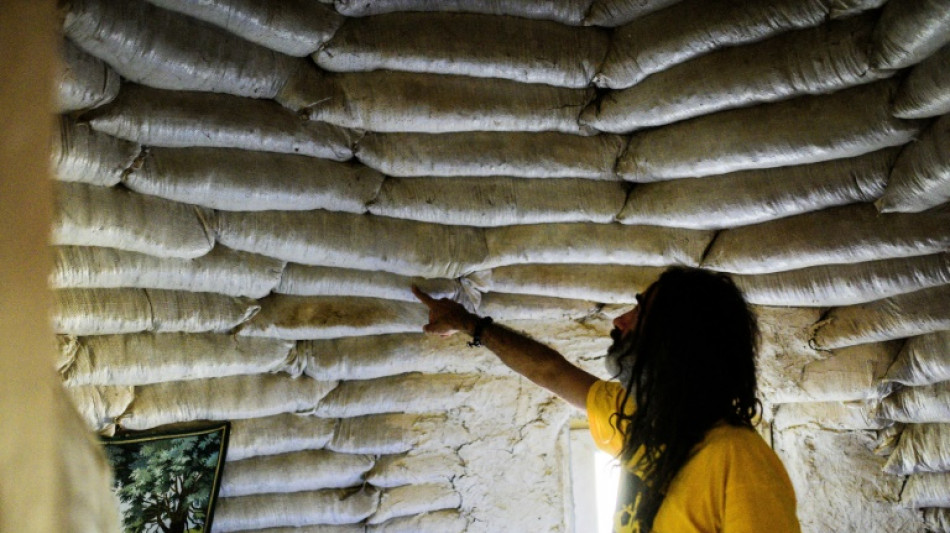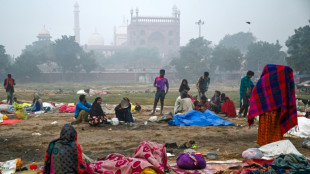

'Embrace discomfort' to save planet says N Macedonia pioneer
One day Dimche Ackov had enough of the stress and pollution of urban life and chucked in his job and headed out into the North Macedonia countryside for a fresh start.
Nearly 10 years later, Ackov has channelled his burnout into a fully-fledged mission to educate people about living closer to nature.
His home, constructed entirely from locally-sourced, natural materials, is now a kind of workshop and school, where hundreds visit every year to learn the ways of sustainable living.
"When I came here to live this way, I didn't have any knowledge. I started to research natural building and I saw that those workshops for natural building were very expensive," said Ackov, who lives near the former industrial town of Veles, once branded one of the most polluted in the world.
"I promised myself that if I ever learn to build those houses, I will share that knowledge for free."
The journey has not been without its pitfalls, with a steep learning curve.
"I didn't even know what a hoe was," the dreadlocked Ackov said of his tentative attempts to live off the land.
But the effort paid off, and Ackov built himself a beehive-shaped home from bags of soil that is cosy in winter and cool in summer. It has its own well, solar panels, vegetable garden and a fridge made from clay.
- 'Make one small change' -
To share the knowledge he has accumulated along the way, Ackov has hosted more than 40 workshops in the last eight years.
After the workshops many people "see the environment with different eyes", he told AFP. "Then you can't destroy it anymore. You feel a part of it."
Ackov believes in embracing the "discomfort" of living in nature.
The goal is "tо give up something harmful, to make one small change. If today, millions of people don't take a plastic bag, a huge change will be made," he said.
Tiny North Macedonia, with a population of only 1.8 million people, is facing some steep environmental challenges.
Air pollution, inadequate waste treatment and illegal logging are major problems.
A recent international study found it had some of the worst air pollution in Europe, with almost two-thirds of people living in areas with more than four times the World Health Organization guidelines for dangerous air particles.
Despite the hurdles, Ackov believes "now is the time to fix what was damaged before".
"We are now small streams, but we will all get together in one river and make huge changes. I am a big optimist, otherwise I wouldn't live this way."
C.Abad--ESF




